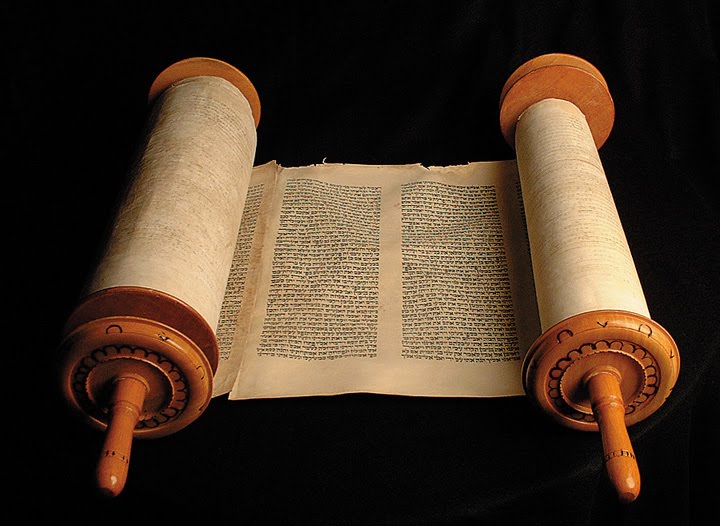Anyone who has worked with the law, whether proposing new laws or administering and enforcing laws already on the books, knows the complexity of the task. In the United States, for instance, there are federal laws, state laws, and local city ordinances in abundance.
This system of constitutional law, which many countries have adopted, comes from the Roman Empire, the power in force during Christ’s time. The emperors believed that the lands they conquered operated best when local needs were considered. So each country was given a certain amount of autonomy to function under its own customs and laws.
As unattractive as the law appears to be on the surface today, however, we truly would not want to live without our laws. Can you imagine a society where there were no traffic or property laws, for instance? Yes, the larger the population becomes, the more complex the law has to be in order to cover every possible conflict and problem, but in most cases, citizens are wise to follow man’s laws, except when they directly oppose God’s commands.
But which of God’s commands are still necessary for us to follow? It becomes confusing because the Hebrews used the term “law” or “instruction” to refer to all God’s revelation to Israel. Let’s find out this week if there are some more definitive terms within this structure to help our modern minds understand which of the laws are still relevant and necessary for us to observe.
Key Text: “For when Gentiles who do not have the Law do instinctively the things of the Law, these, not having the Law, are a law to themselves” Romans 2:14 NASB
“A law to themselves” sounds rather troubling to our Western minds. We picture the Wild West, or any society where law is not written down and just haphazardly observed by those who are so inclined.
But the verse must be seen in context as a description of how God’s law exists beyond the borders of Israel. Men, who rightly make good choices, through nothing more than their own God-given consciences, are also keeping God’s moral law, as given to Moses. This, I’m sure, is the point Paul is trying to make in this letter to the Romans (a people whose attention would find the topic of the law attractive).
Sunday: Roman Law
Our first glimpse of Roman law in the Bible pertains to Jesus’ birth, found in Luke 2:1-5. Here Joseph and Mary seem to have no choice but to obey the harsh tax requirement of registering in one’s birth city. Poor Mary was far along in her pregnancy, and even though she and Joseph must have tried to talk themselves out of it, they find themselves on the rough, crowded road to a tiny town called the city of David.
How interesting that they hadn’t headed that way before this time though. Didn’t they remember the prophecy about the Messiah coming from Bethlehem (Micah 5:2)? But both Mary and Joseph had ancestors who were from Bethlehem. Maybe they thought that would get them by. But God was taking no chances of the birth not taking place literally in the town, prophesied so many centuries before.
Here God used a foreign government to enact what seemed like a cruel tax code, in order to get His special couple to the place He wanted them. Let’s remember that God doesn’t cause bad things to happen, but He certainly is a Master at using those things to fulfill His universal mission of ending sin, once and for all.
Discussion Questions: What other examples in the Bible are there to illustrate how laws of oppressive governments were used by God to further the plan of salvation? [examples: great stories of deliverance like Daniel being saved in the lion’s den would have not occurred without some unwise legislation and Daniel’s friends would have not have escaped the furnace without a king’s arbitrary requirement to bow down to an idol; also, Joseph’s good management of Egypt’s economy would not have been used to save his father and brothers during the famine]
How should we, as citizens and Christians, respond to the laws of our community and country?
Monday: Mosaic Law–Civic
 Even though Jews were under Roman rule during the time of Jesus, they were allowed authority over issues pertaining to their own customs and religion. The Jewish legislative body with this local authority was called the Sanhedrin, sometimes referred to as the council, and consisted of 71 men, selected by priests, elders, and rabbis. The high priest presided over them.
Even though Jews were under Roman rule during the time of Jesus, they were allowed authority over issues pertaining to their own customs and religion. The Jewish legislative body with this local authority was called the Sanhedrin, sometimes referred to as the council, and consisted of 71 men, selected by priests, elders, and rabbis. The high priest presided over them.
Jewish society was based on civil codes found in the five books of Moses, called the law of Moses. These laws were revealed to Moses at a time when a theocracy was God’s choice for their government. It was only after the Israelites insisted on a king that a monarchy was set up.
Several examples of Mosaic law were in evidence at the time of Christ. Temple tax, divorce and marriages, circumcision, and the punishment for adultery were mentioned in the New Testament. These were some of the civil laws that went back to the time of Moses.
Some of the civil laws in the early books of the Bible do sound strange and foreign to our modern ears, but keep in mind the culture and times in which they appeared. Even some of the laws in the early part of United States history, less than 300 years ago, would make us cringe or wrinkle our foreheads in puzzlement. And Moses goes back much further than that!
So, it might be helpful to just trust God to explain these things to us someday, even if that day is when we get to heaven. There’s a time to question God (and God does invite questions), but there’s also a time to trust Him to handle things as He sees best.
Discussion Questions: Stoning seems like a cruel form of execution to us, but why do you think it may have been the most merciful way to deal with lawbreakers for those times?
Tuesday: Mosaic Law–Ceremonial
Besides civil laws, a good share of Moses’ revelations regarding the sanctuary and its services are known as ceremonial laws. Several of them in Leviticus pertained to sacrifices and holy observances and were very precise and detailed in nature.
Their function was to teach the children of Israel (who had just come out of four hundred years of slavery in Egypt) the plan of salvation and point them to the coming Messiah once again. Since most of these ceremonial laws were only a type, a symbol of something in the future, we are no longer obligated to keep them, as Jesus’ life, death, and ministry as High Priest has already occurred. The torn veil (Matthew 27:51) in the temple while Jesus was on the cross verifies the end of animal sacrifices and other services which point to Christ.
It can be helpful to study the sanctuary and its ceremonies, however, as they can still show us insights into the plan of salvation and who Jesus is.
Discussion Questions: In what way would these ceremonial laws be considered “miniprophecies” of Christ and His work of atonement?
How do they help us see what Jesus may be doing for us now in the Heavenly Sanctuary?
Think of some instances when Jesus spoke of symbols in the sanctuary. How can we understand His illustrations, if we aren’t familiar with the sanctuary and temple services in the first place?
Author’s Note: Leviticus 11, a chapter that describes the difference between clean and unclean meats, is perhaps something we should still pay attention to today. Strong’s Concordance lists this chapter under the category of religious laws. If you have questioned the validity of staying away from unclean meats in modern times, especially pork and some seafoods, then research the debate about their safety. I saw an excellent online article in Natural News called “Was the Bible correct that pork is truly an unclean meat?”, by Dr. David Jockers, award-winning author of several books, such as Supercharge Your Brain. He explains why pork and other scavenger animals may be too toxic for human consumption. From just a physical/health standpoint, it does make sense to avoid some meat products. God’s way is always best for us in the long run.
Wednesday: Rabbinic Law
A very unique type of law, not found in the Bible, was observed in Jesus’ day. It was called rabbinic law, because rabbis, that branch of Pharisees who were most scholastic, were the originators of it. Their task was to keep the 613 Mosaic laws relevant to the people by supplementing them with laws of their own. They were at first oral laws meant to be spiritual in nature, but after a time came to be recorded in books, such as Midrash and Mishnah, and were observed very legalistically.
There were many unnecessary restrictions added which made it a burden for the people to observe them. When Jesus was accused of breaking the Sabbath, for instance, it was one of their exacting rabbinic laws that was really in question. Jesus upheld the Sabbath as it was in God’s law, but not in accordance with these strict rabbinic laws, which had become so onerous for the people.
Discussion Questions: How can church members show the relevancy of God’s law without making up rules of our own? Are all such observances and lists of rules bad though? [We must keep in mind that these rules are meant to change over time. For instance, taking a bath on the Sabbath in the 1800s might not be a good idea; but what about today, with the ease of hot and cold water faucets, which make it less of a chore? What other examples can you think of that change over time?]
Thursday: The Moral Law
And now we come to the Law of all laws, the Ten Commandments, also known as the moral law. Even the rabbis upheld and reverenced this set of laws from God Himself. All the law of Moses and the rabbinic laws were believed to be based on it. Even though all 613 laws of Moses were to be memorized, they also had a practice of reciting the Ten Commandments daily to keep it ever in their minds.
This makes the Ten Commandments sound like a handy tool for the Jews, but Christians, especially ones today, are not really needing them for guidance any more, because we live in an age of grace. At least this is the current thread of logic for many Christian churches. We like to emphasize love now, more than this set of ten rules. One has only to look around at the moral decline this thinking has brought to our society to see what a dangerous course this has been.
Here are some New Testament glimpses into the position the Moral Law should still hold in our lives:
- Matthew 19:16-19 Here Jesus is asked by a rich, young ruler what he must do for eternal life. Jesus’ first response was to keep the commandments. When asked which ones, Jesus then made it clear that the Ten Commandments were necessary for salvation.
- Romans 13:8-10 Paul is explaining good Christian conduct and doesn’t neglect mentioning several of the Ten Commandments, which obviously are still binding on Christians, not just Jews.
- James 2:8-12 One verse in the passage says, “For whosoever shall keep the whole law, and yet offend in one point, he is guilty of all.” v. 10 KJV The law he refers to is obviously the Ten Commandments, because he mentions what several of them are in the surrounding verses.
One way to see the connection between Christ and the Law is to look at these verses:
- Leviticus 18:5 “So you shall keep My statutes and My judgments, by which a man may live if he does them; I am the Lord” NASB (See also Psalm 119:93 and Deuteronomy 30:15.)
- John 10:10 “…’I came that they may have life, and have it abundantly'” NASB (See also John 11:25)
We can clearly see that the way to life is through both Christ and the Ten Commandments.
Discussion Questions: What role does the Ten Commandment Law have for Christians today?
Is it possible to just keep part of the law, perhaps the ones pertaining to our fellowmen?
How does breaking one of them affect the others?
Summary: An understanding of the historical and cultural setting in Christ’s time gives us a foundation for looking at God’s moral law, the Ten Commandments.
Challenge: Read Psalm 119 this week and see how much in love David was with God’s law.
Take some time to meditate on the Law yourself this week.
Check out my Outlook blog, if you haven’t already, called “Looking Forward to the Law“. Try to develop a positive attitude about studying the law, if you find yourself lacking enthusiasm for this quarter’s study.








